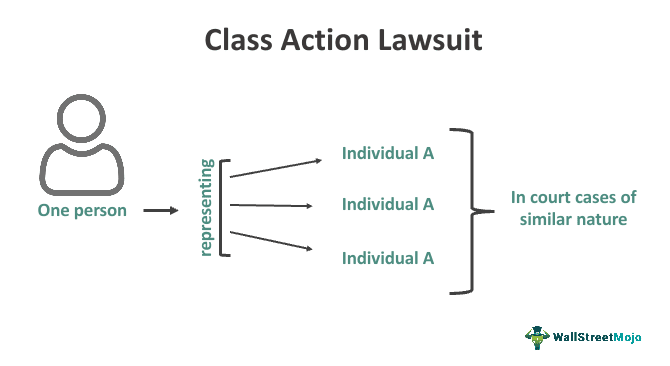Debunking Class Action Lawsuits: Your Essential Guide to Legal Recourse
Wiki Article
Key Factors to Consider in Course Action Suits: Insights for Lawyers
Class activity claims can be challenging and intricate for legal representatives to navigate. Understanding these factors and their effects is vital for attorneys aiming to properly represent their customers in class activity claims.Class Certification Needs
To wage a course activity lawsuit, legal representatives need to navigate through a collection of rigid class qualification demands. Class qualification is a vital stage in the lawsuits process that establishes whether a group of complainants can be accredited as a class and wage their insurance claims jointly. These demands offer to guarantee that course actions are efficient and ideal mechanisms for resolving disagreements entailing countless plaintiffs.While there is no set mathematical limit, courts generally consider a class with even more than 40 participants as completely countless. Additionally, commonality is another necessary variable in class certification.
Additionally, typicality and adequacy of depiction are vital factors to consider. Typicality makes certain that the claims or defenses of the representative parties are common of the class. Adequacy of representation ensures that the representatives will fairly and effectively secure the passions of the course participants. Ultimately, a course action should likewise satisfy the requirement of superiority, meaning that a course activity is a premium approach for settling the conflict compared to other available approaches.
Navigating through these course accreditation requirements can be intricate and challenging for legal representatives. Understanding and meeting these requirements are necessary to successfully go after a course action claim on behalf of a group of complainants.

Commonness of Cases
The next crucial variable to take into consideration in the class qualification procedure is the commonality of cases among the complainants. Commonness refers to whether the course members share comparable legal concerns and concerns of fact that can be solved collectively. To put it simply, it is needed to identify if there prevail concerns of regulation or truth that are main to the litigation which predominate over any type of specific problems.To develop commonality, the complainants need to demonstrate that there are accurate or lawful issues that are usual to the entire class. This can be attained by determining an usual course of conduct or a typical lawful theory that underlies the cases (Class action lawsuit). The presence of typical inquiries is essential due to the fact that it promotes judicial effectiveness and economic situation by enabling a solitary choice to deal with the concerns for the whole class
Nevertheless, it is vital to note that the commonality demand does not demand that all the specific claims equal. Distinctions in problems or specific circumstances do not always beat commonness if there are still typical concerns that bind the class together.

Damages Computations
When determining problems in course action suits is the precise analysis of economic losses incurred by the class members,One important facet to consider. In order to identify the proper quantity of settlement, it is necessary to assess the degree of damage endured by each person within the course. This can be an intricate task, as it requires a complete evaluation of numerous variables, such as the nature and period of the injury, the economic impact on the affected individuals, and any type of various other pertinent factors to consider.When assessing financial losses, it is essential to take into consideration both the indirect and direct damages suffered by the class members. Direct damages refer to the actual out-of-pocket expenditures sustained as an outcome of the accused's activities. These may include medical bills, home damage costs, or any various other substantial monetary losses. On the other hand, indirect damages incorporate the abstract losses that are a lot more hard to evaluate, such as emotional distress, loss of online reputation, or reduced lifestyle.
To compute damages properly, lawyers have to collect detailed proof, including economic records, professional opinions, and statements from the course members. They might also require to involve financial and financial specialists who can supply insights right into the lasting monetary effects of the harm experienced.
Negotiation Negotiations
Throughout settlement negotiations, lawyers should participate in strategic and cautious conversations to get to a mutually acceptable resolution for all events involved in the class activity lawsuit (Class action lawsuit). Settlement arrangements are an essential phase in the lawsuits process, where the events attempt to get to a concession without going to test. These arrangements require attorneys to use their settlement skills, legal proficiency, and understanding of the situation's weaknesses and strengthsOne crucial variable to consider during settlement negotiations is the prospective threats and prices connected with continuing to test. Attorneys should meticulously review the chance of success at trial and weigh it against the prospective advantages of a negotiation. They need to additionally consider the potential time and resources that would be required to experience a trial, as well as the possible unfavorable attention that might result from a public trial.
An additional crucial variable is the interests and problems of the class members. Lawyers require to comprehend what the course participants wish to accomplish through the legal action and exactly how a settlement can address their complaints. By taking into consideration the class members' viewpoints and seeking advice from them throughout the settlement process, lawyers can better promote for their rate of interests and guarantee that any negotiation reached is fair and satisfactory.
Additionally, lawyers should be prepared to negotiate with the opposing event and their legal reps. This needs a deep understanding of the toughness and weaknesses of both sides' arguments and a desire to compromise. Knowledgeable mediators can utilize this understanding to find commonalities and craft creative options that fulfill the requirements of all events involved.
Reliable Client Depiction
To efficiently represent their customers in course action legal actions, attorneys have to possess an extensive understanding of the instance and diligently supporter for their customers' rate of interests. Reliable client depiction requires attorneys to establish open lines of interaction and maintain a solid attorney-client relationship throughout the whole lawsuits process.
First and leading, attorneys must thoroughly examine the facts, legal concerns, and potential dangers connected with the situation. This consists of conducting a thorough investigation, evaluating appropriate documents, and seeking advice from professionals if essential. By gaining a deep understanding of the situation, legal representatives can develop a calculated approach tailored to their clients' requirements and purposes.
Additionally, attorneys have to proactively advocate for their clients' rate of interests throughout all phases of the legal action. This entails drafting convincing lawful arguments, conducting detailed research, and providing engaging evidence to sustain their clients' insurance claims. Lawyers need to additionally remain notified regarding recent growths in course activity law and use this expertise to reinforce their clients' positions.
Along with lawful campaigning for, efficient client depiction includes offering normal updates, addressing inquiries, and attending to any problems that customers may have. Legal representatives must be proactive in maintaining their clients informed concerning the development of the instance and any type of significant growths that may influence the result.
Ultimately, reliable client depiction requires legal representatives to be thorough, responsive, and devoted to safeguarding their customers' passions and rights. By taking on a client-centered approach, attorneys can maximize the opportunities of achieving a desirable outcome in course activity suits.
Verdict
Finally, Class action lawsuit lawyers included in course activity suits must take into consideration key aspects such as course certification requirements, the commonality of insurance claims, problems estimations, negotiation arrangements, and effective client representation. By very carefully resolving these factors, attorneys can improve their possibilities of success in course activity claims and make sure that the passions of their customers are shielded.
Recognizing these variables and their effects is crucial for lawyers intending to effectively represent their clients in class action lawsuits.To continue with a course activity claim, attorneys need to navigate through a series of strict class qualification needs. Course accreditation is a critical phase in the lawsuits process that identifies whether a group of plaintiffs can be licensed as a class and proceed with their cases jointly. A class action should also satisfy the need of supremacy, implying that a course activity is a remarkable approach for adjudicating the disagreement contrasted to other available approaches.
One critical element to consider when computing problems in class activity suits is the exact evaluation of financial losses sustained by the class members.
Report this wiki page